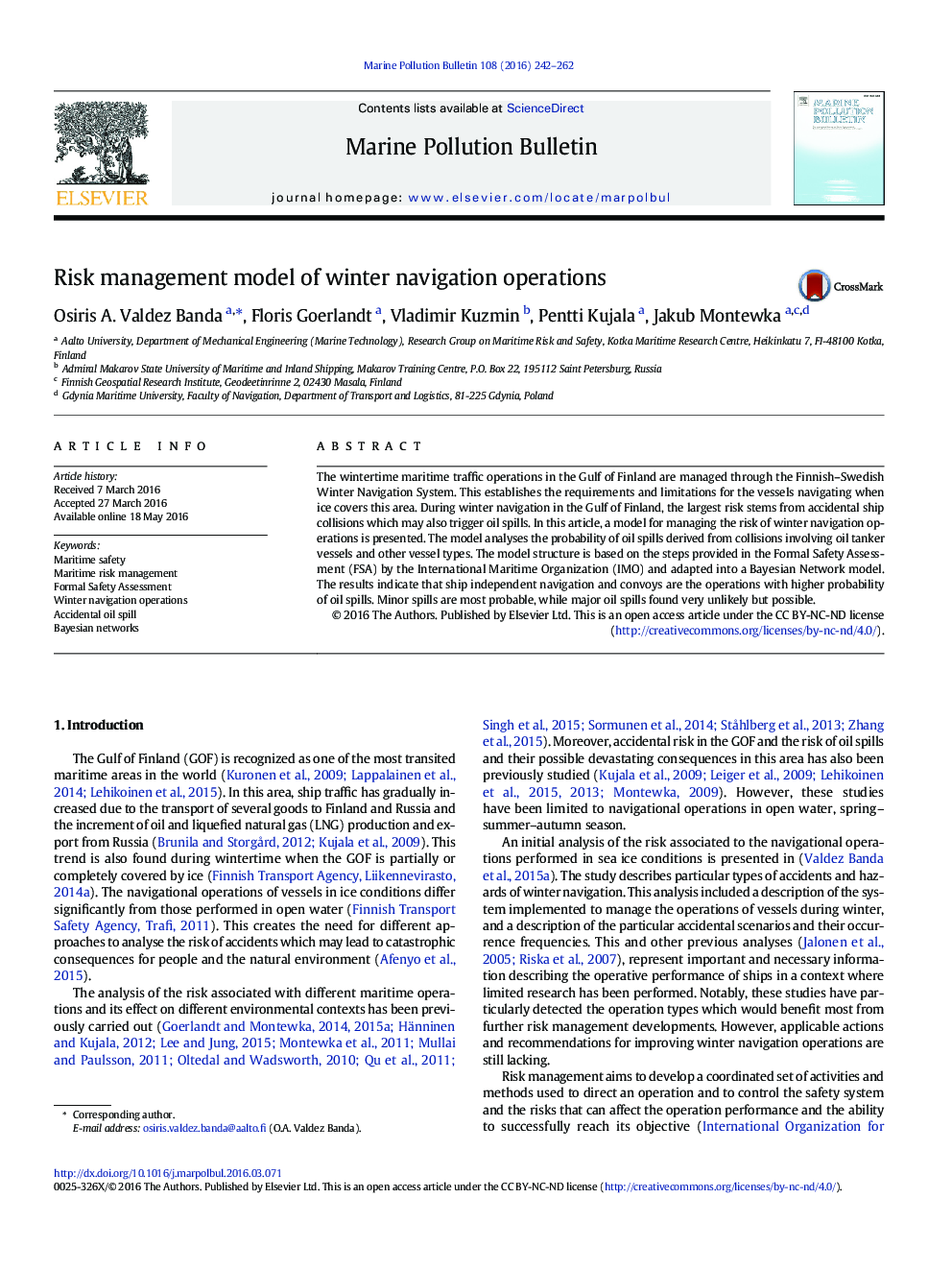| کد مقاله | کد نشریه | سال انتشار | مقاله انگلیسی | نسخه تمام متن |
|---|---|---|---|---|
| 6355963 | 1622726 | 2016 | 21 صفحه PDF | دانلود رایگان |
- A model to assess and manage the risk of winter navigation operations is proposed.
- The risks of oil spills in winter navigation in the Gulf of Finland are analysed.
- The model assesses and prioritizes actions to control the risk of the operations.
- The model suggests navigational training as the most efficient risk control option.
The wintertime maritime traffic operations in the Gulf of Finland are managed through the Finnish-Swedish Winter Navigation System. This establishes the requirements and limitations for the vessels navigating when ice covers this area. During winter navigation in the Gulf of Finland, the largest risk stems from accidental ship collisions which may also trigger oil spills. In this article, a model for managing the risk of winter navigation operations is presented. The model analyses the probability of oil spills derived from collisions involving oil tanker vessels and other vessel types. The model structure is based on the steps provided in the Formal Safety Assessment (FSA) by the International Maritime Organization (IMO) and adapted into a Bayesian Network model. The results indicate that ship independent navigation and convoys are the operations with higher probability of oil spills. Minor spills are most probable, while major oil spills found very unlikely but possible.
Journal: Marine Pollution Bulletin - Volume 108, Issues 1â2, 15 July 2016, Pages 242-262
